
Convocation 2023
Kinship: Re-Weaving the Great Web of Belonging
Kinship: Re-Weaving the Great Web of Belonging
Learn about our Creative / Contemplative Immersion Sessions
 Sacred Sylvan Saunter
Sacred Sylvan Saunter
Kimberly Knight, MDiv • View bio
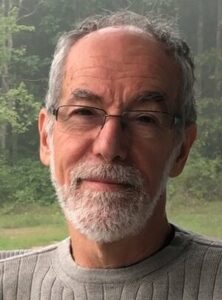 Poetry, Scripture and the Language of Holy Confusion
Poetry, Scripture and the Language of Holy Confusion
Rev. Steve Garnaas-Holmes • View bio
Our everyday use of language tends toward dissection. We cut the world up into this and that. It's a function of dualistic thinking in which everything means this and not that. Ideas, beliefs, descriptions are all ways of distinguishing something from everything else. Science and law are at the extreme end of the spectrum, with excruciating detail. But we all talk like that, a little. We mean to say what we mean to say, not something else. Poetry and scripture aren't like that. Because the world isn't like that. There's only one thing, and we're all part of it. It's an ecology, an interrelated web. Each bit of the world is a distinct bit, yes, but a bit of a whole. Everything has something of everything else in it. We are all part of the Body of Christ, the ecosystem of God. We are all con-fused. Poetry and scripture (all scripture!) are the language of interrelatedness, the native tongue of paradox. They don't dissect; they weave. They connect things. They say more than they mean to say. They work through symbol, allusion, metaphor and muscle memory. And they work on more than one level, especially in the unconscious. A parable, for example, is a paradox, meant to confuse you (that is, to contradict your dualistic assumptions and fuse you with the whole). In this creative immersion we'll explore ways of reading scripture as poetry, which means weaving instead of dissecting, which means entering into holy confusion, which means a different kind of clarity, which means prayer.
Hope Is Not Optional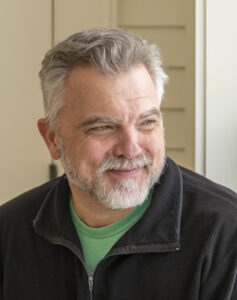
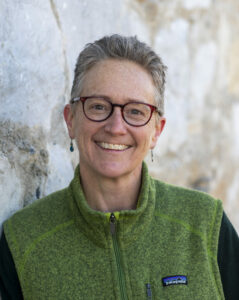
Rev. Dr. Andi Lloyd & Rev. Andy Nagy-Benson • View bios
Hope is not optional in a time of climate change. Hope is what keeps us working toward a future of mutual flourishing, even when the path ahead is unclear. Hope looks clear-eyed at the world as it is, then lifts our gaze to the horizon of what could be. This contemplative immersion experience stems from the recognition that while hope can be difficult to find in the throes of existential crisis, its seeds are meant to be sown and grown in community. In our time together, we will explore our own relationships with hope — Where do we find hope? What comes between us and our hope? And in the spirit of cultivating hope, we will step outside to engage in a directed spiritual practice of attentiveness and journaling.
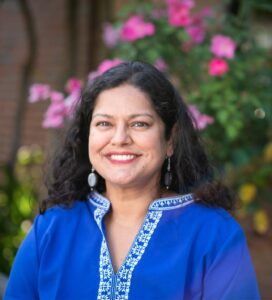 Moving from 2 to Infinity: Learning from Hindu perspectives
Moving from 2 to Infinity: Learning from Hindu perspectives
Preeta Banerjee, PhD • View bio
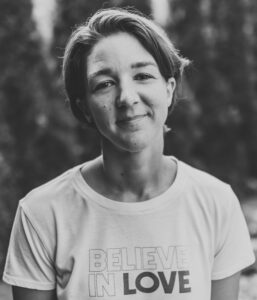 Music in Relationship
Music in Relationship
Rev. Liz Fulmer • View bio
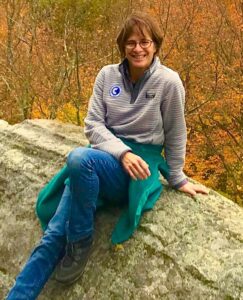 Nurturing Kinship Through Contemplative Chant
Nurturing Kinship Through Contemplative Chant
Rebecca Kneale Gould, PhD • View bio
Chanting is a practice with roots in religious and wisdom traditions all across the globe. It is an embodied practice that settles the mind and opens the heart. Wordless chants allow us to sink into a meditative space, while chants focused on just a few words of sacred text often enable us to gain new insights into the meanings of those texts for our own lives.
In this contemplative immersion, we will learn sacred chants that are grounded in the Psalms and the words of the Prophets. We will chant in both English and Hebrew (keeping it simple) focusing on chants that evoke and enhance our connections with the natural world. We will then take those chants out into that world, using chants of praise and consolation to connect with the rocks, trees, grasses and sea-breezes. We will weave some text study into our time together and will also take a step back to talk about what we have done, how it feels and how we might want to take chant into our own lives and sacred communities.

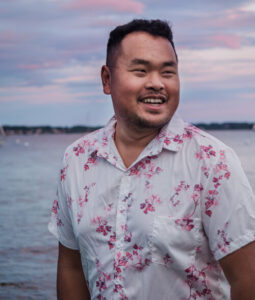 In The Stillness
In The Stillness 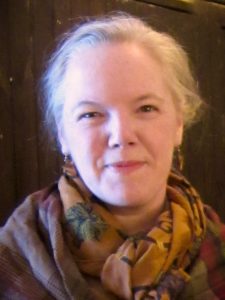 Wisdom Where Farm & Wild Meet
Wisdom Where Farm & Wild Meet 